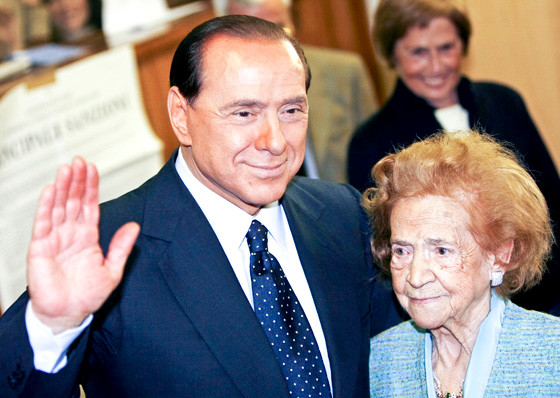To fight evil, rediscover the spark of decency
Addressing the Knesset on the occasion of the 2010 visit by his Italian counterpart, Silvio Berlusconi, Prime Minister Benjamin Netanyahu shared story about an Italian woman during World War II.
“On the train, on her way to work, this woman observed a German policeman arresting a Jewish girl,” the prime minister recounted. “The Italian woman, who was then eight months pregnant, came between the German officer and the Jewish girl.”
“Without an ounce of fear she confronted the German officer and told him: ‘You can kill me, but look at the faces of the passengers on the train. I assure you, they will not let you out of here alive’.”
“With these decisive words, that Italian woman saved the life of the Jewish girl. She lit, if only for a second, a beacon of human light and courage in the great darkness that covered the entire land of Europe at the time. That brave woman was named Rosa, and one of her children is Silvio Berlusconi, Italy’s Prime Minister.”
This week, we read the portion of Tetzaveh, continuing the Torah’s description of the building of the Mishkan (Tabernacle) and the vessels contained therein.
The portion concludes with the instructions for making the altar of gold, on which incense was burned. Why do we still read the instructions for making these vessels; of what relevance can the golden altar which once graced the Temple have for us today? We have no temple, and we do not offer sacrifices or incense.
There is an interesting halacha regarding this Mizbeach haZahav, or golden altar: The Mishna (Chagigah 3:8) teaches that both the altar of gold and the altar of copper could not become impure, and did not ever need to be immersed in purifying water.
In last week’s portion Terumah, when we are commanded to build a Tabernacle (harbinger of the Temple) G-d says:
“Ve’asu li Mikdash veshachanti be’tocham” (“Let them make for Me a sanctuary and I will dwell in them”) (Shemot 25:8).
The commentaries note that the verse does not say G-d will dwell in it, i.e. in the sanctuary, but rather in them: in each and every Jew.

 47.0°,
Fair
47.0°,
Fair 




